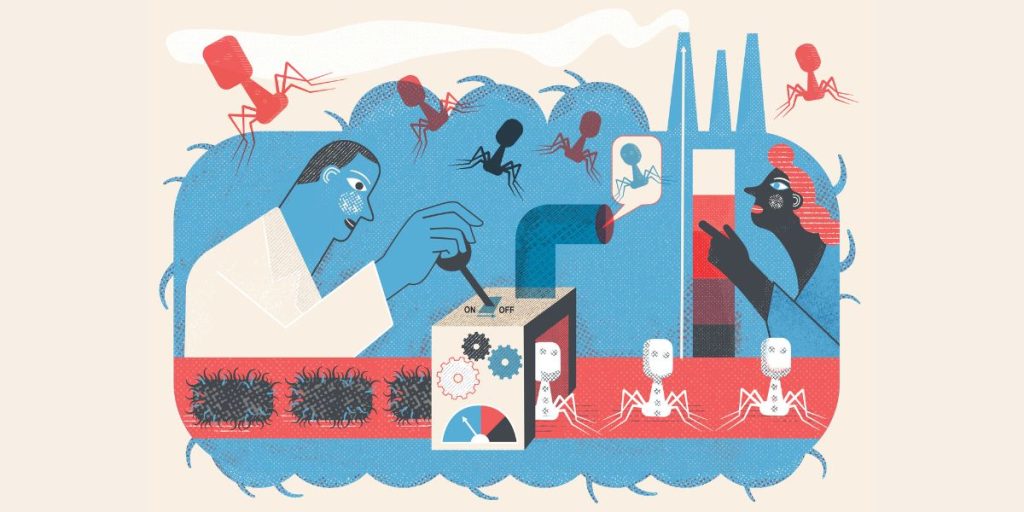KU Leuven and Queen Astrid Military Hospital implement phage therapy for the first time in people with antibiotic-resistant infections
An international consortium, led by KU Leuven and Queen Astrid Military Hospital, has treated 100 patients with personalized phage therapy for the first time. This treatment uses viruses to fight antibiotic-resistant bacteria. This research was published in Nature MicrobiologyIt shows that phage therapy can be an effective treatment for infections where antibiotics are not effective enough.
Due to frequent and incorrect use of antibiotics, more and more bacteria are becoming resistant to this type of treatment. So much so that the World Health Organization considers antibiotic resistance one of the biggest threats to health worldwide. To combat this, there is a great need for new ways to treat bacterial infections. Researchers and doctors from the Queen Astrid Military Hospital have joined with the Gene Technology Laboratory at KU Leuven to develop a personalized phage therapy for around 100 patients.
“Bacteriophages are small viruses that attack bacteria very specifically,” explains Professor Rob Lavin from the University of Leuven. “Bacteriophages inject their DNA into bacterial cells, turning them into virus-producing factories. The bacterial cells then explode and release new phages.
Viruses to fight bacterial infections
Thanks to years of experience in the field of phage biology, the research team was able to select the appropriate phages for each patient to combat antibiotic-resistant infections. “Since phages are very selective and leave the good bacteria in the body alone, it is important to match the right phages to the right patient, so that the pathogenic bacteria are attacked very precisely. Moreover, the procedure must be safe for the patient himself,” says Lavin. Each phage preparation is completely prepared and prepared first by Sciensano. In the future, we will study how to apply this method in a safe and effective way, where the experience of the treating physicians and surgeons is also essential.
Make antibiotics great again
After treatment, patients showed a 77.2% reduction in bacteria and a 61.3% clinical improvement was observed. The best results were achieved when phage therapy was applied in combination with antibiotics.
We can learn from this that phage therapy works on its own and even makes bacteria sensitive to antibiotics again, but the combination of phage therapy and antibiotics is important for an ideal success story.
Postdoctoral researcher Sabrina Green from the University of Leuven
“Currently, we still rely heavily on the temporary research resources of our people and the financial goodwill of hospitals to implement personalized phage therapy in practice,” said Dr. Jean-Paul Bernay, lead author of the study. “Our study shows that there is indeed a future for this method, but further technical innovations and a stable framework to implement the treatment on a larger and more affordable basis are necessary.”
more information
- the study Outcomes of personalized bacteriophage therapy for 100 consecutive cases: a multicenter, multinational, retrospective observational study. By Bernay et al. It was published in Nature Microbiology (DOI: 10.1038/s41564-024-01705-x).
- Progress in (bio)medical research does not automatically mean that there is progress in medicine as well. Before good research results can be translated into new treatments or research methods, an additional development process must be completed, which can sometimes take years.

“Coffee buff. Twitter fanatic. Tv practitioner. Social media advocate. Pop culture ninja.”











More Stories
Which can cause an increase in nitrogen.
The Central State Real Estate Agency has no additional space to accommodate Ukrainians.
The oystercatcher, the “unlucky national bird,” is increasingly breeding on rooftops.